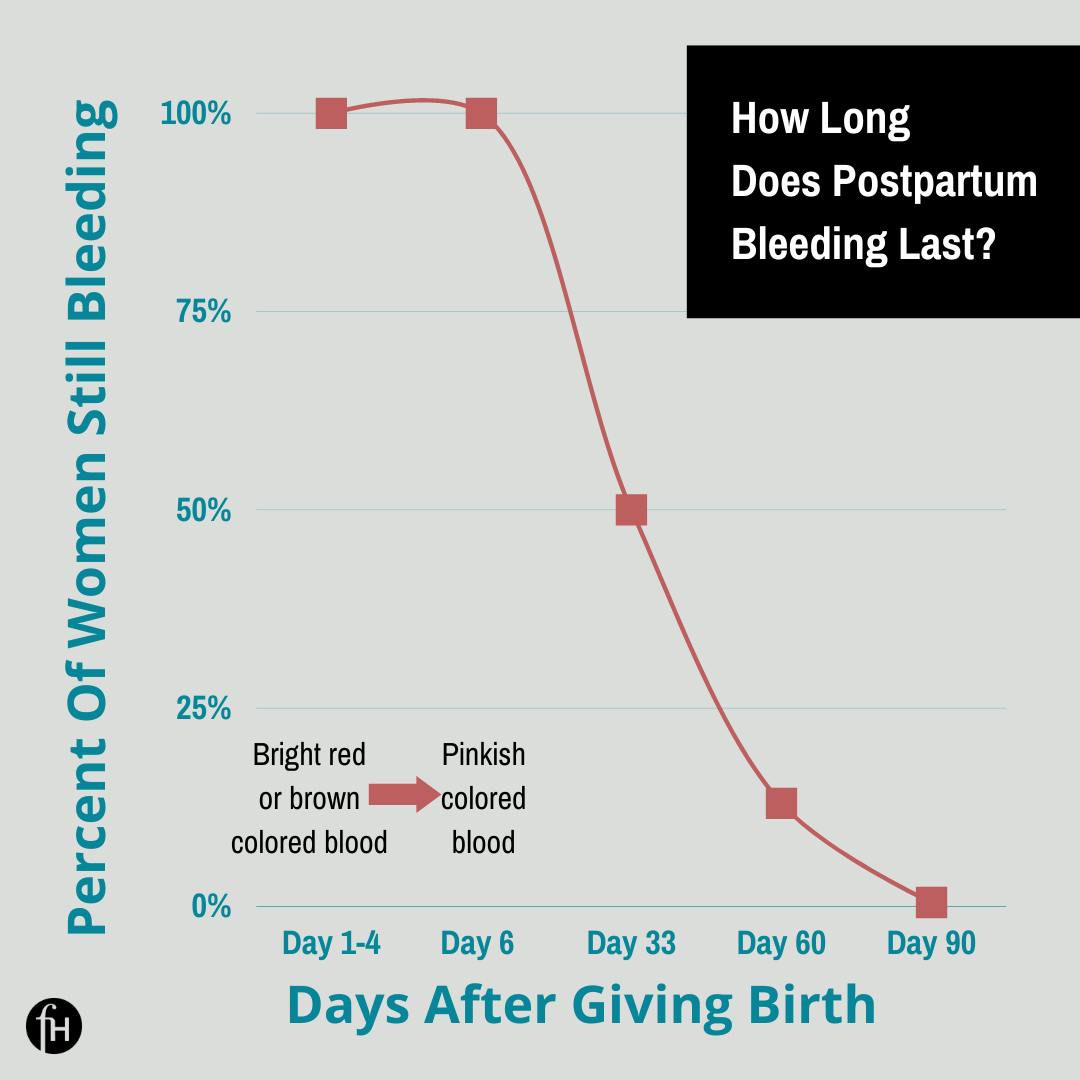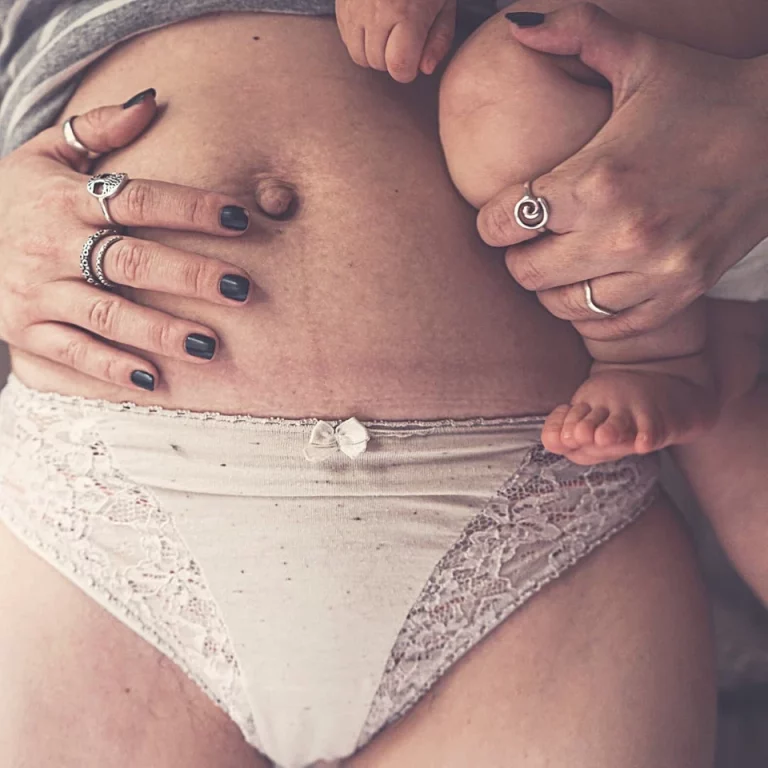How Long Postpartum Bleeding Will Last
Are you wondering, how long postpartum bleeding will last after birth? It is not the same for everyone, and it is difficult to predict what makes someone’s bleeding course longer than someone else’s.
A systematic review of studies showed that on average postpartum bleeding lasts 24 to 36 days after delivery. Another study showed that on average, women will bleed for about 33 days (or just over 1 month) postpartum. The shortest duration reported for postpartum bleeding is about 17 days after birth.
Another name for postpartum bleeding is lochia. About 13% of people will have lochia for up to 2 months, or day 60. It is rare to have postpartum bleeding last beyond 90 days. If you have bleeding past this point, it could be your menstrual period returning. Keep your Ob Gyn informed of how long your postpartum bleeding lasts.
Postpartum bleeding is heaviest in the first 2 to 3 weeks and then starts to taper off. Some patients may experience a periodic spike in their bleeding during the tapering down. The first 3 to 4 days postpartum the blood will be a bright red or brown color. After 4 to 6 days the postpartum bleeding color will start to look more pink. The postpartum bleeding chart below provides a description of what you can expect:

If breastfeeding, you may see a spike in lochia while you are breastfeeding. This is because breastfeeding and nipple stimulation cause the uterus to contract. This contraction can cause a gush a blood through the vaginal canal.
How To Stop Postpartum Bleeding Faster
There is nothing you can do to stop postpartum bleeding from resolving faster. It must run its course. It is a normal part of the postpartum period. Breastfeeding will help the uterus to contract back closer to its original shape, but it does not have a large impact on how long postpartum lasts.
Postpartum Hemorrhage
When it comes to postpartum bleeding, it is important to know what is normal and what is not. Postpartum hemorrhage, which is excessive bleeding after birth, is not normal and needs emergent medical attention. If you are soaking through more than 2 pads an hour for more than 1 to 2 hours, you need to seek urgent medical help. Although in most cases postpartum hemorrhage happens within 24 hours of delivering a baby, there are cases where it has happened almost 3 months later.
This heavy bleeding is usually a result of something called uterine atony. Atony means lacking tone. After you have a baby, your uterine muscles need to contract to help the uterus regain its normal shape and structure. In most pregnancies this happens as a natural course of postpartum. Breastfeeding and pumping breast milk can help the uterus to contract. In a situation of uterine atony, the uterus does not contract as it normally should. The blood vessels that are inside the uterus can then bleed as a result of this. If a patient has retained placenta after their delivery they are also at a higher risk for postpartum bleeding.
In addition to having blood soaked pads, patients may also pass large blood clots (size of golf ball or larger), have low blood pressure, feel confused or dizzy, have a high heart rate (tachycardia), and even swelling or discomfort in their genital area. Head to an emergency room immediately if you think you are having a postpartum hemorrhage.
Related: Postpartum Rib Pain
Sources:
Fletcher S, Grotegut CA, James AH. Lochia patterns among normal women: a systematic review. J Womens Health (Larchmt). 2012 Dec;21(12):1290-4. doi: 10.1089/jwh.2012.3668. Epub 2012 Oct 26. PMID: 23101487.
https://pubmed.ncbi.nlm.nih.gov/23101487/
Oppenheimer LW, Sherriff EA, Goodman JD, Shah D, James CE. The duration of lochia. Br J Obstet Gynaecol. 1986 Jul;93(7):754-7. PMID: 3755355.
https://pubmed.ncbi.nlm.nih.gov/3755355/
Visness CM, Kennedy KI, Ramos R. The duration and character of postpartum bleeding among breast-feeding women. Obstet Gynecol. 1997 Feb;89(2):159-63. doi: 10.1016/S0029-7844(96)00482-6. PMID: 9015013.
https://pubmed.ncbi.nlm.nih.gov/9015013/
Sherman D, Lurie S, Frenkel E, Kurzweil Y, Bukovsky I, Arieli S. Characteristics of normal lochia. Am J Perinatol. 1999;16(8):399-402. doi: 10.1055/s-1999-6818. PMID: 10772198.
https://pubmed.ncbi.nlm.nih.gov/10772198/
We discuss products we think are useful to people. If you buy something through our links, we may earn a commission. Remember to check with your personal physician to see if a product recommended is right for you.








